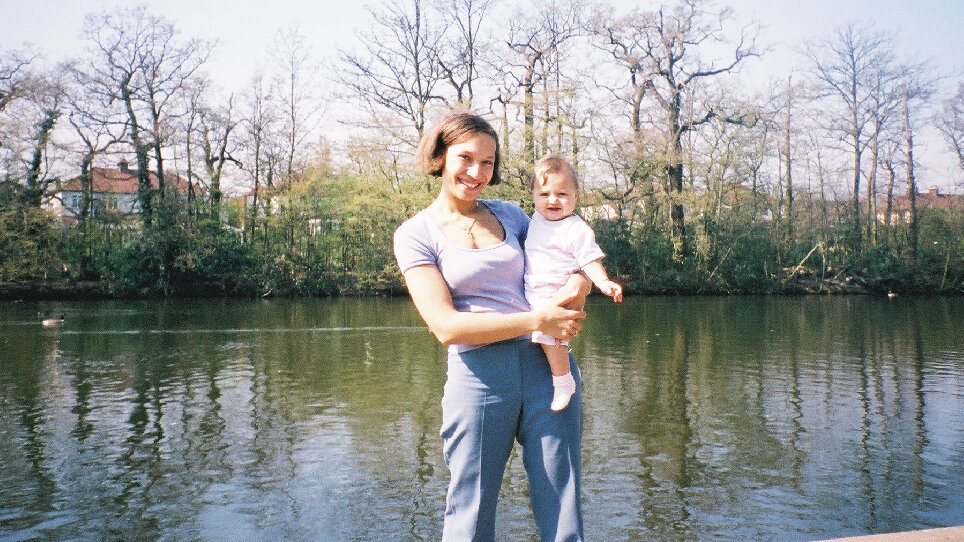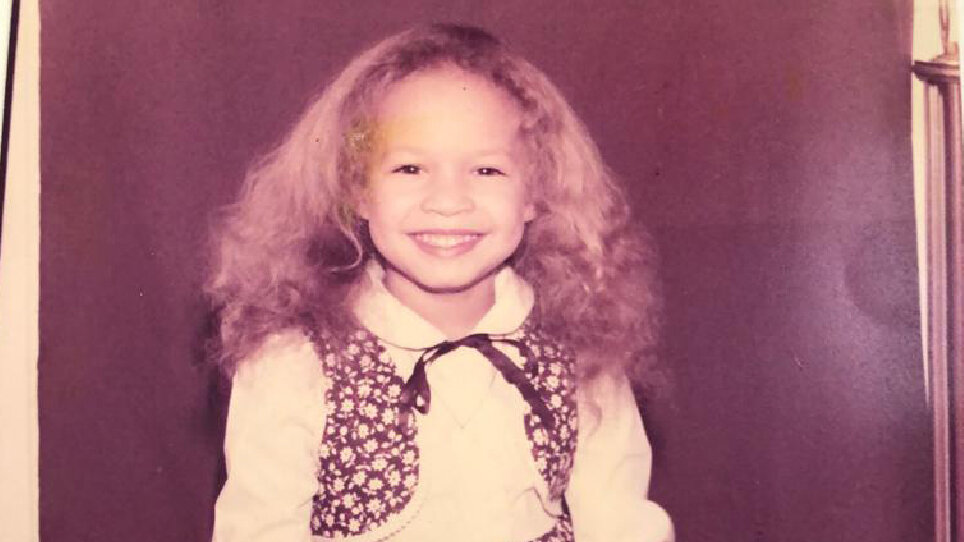Amanda's story
Amanda, 45, a SEND Coordinator and master's student, was diagnosed at the age of 34. In her full interview, below, Amanda explains that her diagnosis followed her son's at the age of four. Amanda also describes her master's project on autism in late diagnosed Black and Black mixed heritage women.
My story
I wanted to take part in this campaign because I think it's really important to see real people who are autistic. There is not enough in the media about it. There are very, very few autistic women on television. And we are here. We exist. There's probably more of us than you think. And if you're thinking that you might be autistic, you might be. Start reading up about what autistic women look like because we do present differently to men.
I'm doing a master’s degree in psychology and my final research project is on autism in late diagnosed Black and Black mixed heritage women. I thought this was really important because in this whole entire world, I only know one other person who's like me. I think it's really important to hear the voices of people who are marginalised for whatever reason. And doing this project has been so amazing. I can't wait to have it finally written up and to tell everybody about it, because we are here.
For this campaign, I chose to be photographed in my living room with my books because I love books. I’ve always loved books. I'm a bit of a book geek, so I've got some of my favourite books on the shelf and I've got my folders from some of the studies that I'm doing at the moment. I love sitting here because it's a nice quiet space where I can just be me, around my favourite things, and be a little bit apart from everybody else in the room, but still be in the room at the same time.

Books have been really important to me and for my diagnosis, because I didn't really know much about autism, so I've read a lot from all kinds of different authors. And it's been such an interest of mine that I've then gone on to study it. I did a postgraduate certificate in autism and learning, which has helped me with my work, and I'm coming to the end of my master's in psychology. At the moment, that's my special interest that I just immerse myself in.
"When I did get the diagnosis, it was a relief because I thought: ‘Oh, thank goodness, there's nothing wrong with me, I'm just autistic."
When I got my diagnosis, I’d suspected for some time that I might be autistic, but I didn't actually think I was going to get a diagnosis. So, when I did get the diagnosis, it was a relief because I thought: ‘Oh, thank goodness, there's nothing wrong with me, I'm just autistic.’ And that kept me going for a short while but then things didn't necessarily change.

I found it hard because there was this bit of me that kept thinking: ‘Well, if I'd known earlier, then I might be different.’ I was kind of grieving what could have been and that took me into a bit of a dark place for a little while. I wasn't doing too well. And then once I got out of that, I thought: ‘Now I know why I am like I am’. And I actually learnt to understand myself. I learnt to accept myself and I learnt to like myself because up to that point I really hadn't. I realised that actually, yeah, I'm autistic, I'm quirky, but that's me. I'm a pretty good person. And actually, I like me.
My diagnosis did change my life. I know it sounds a bit clichéd, but it was literally life changing. Not just in terms of my self-esteem, but it helped me to increase my confidence and it enabled me to do things that I hadn't dreamt I'd be able to do, like this campaign. It made me happier and it made me determined to try and change things for other people and to support the students that I was working with even more.
"I know it sounds a bit clichéd, but my diagnosis was literally life changing."
I’m a ‘SENDCo’, the special needs coordinator in my school, and I’m very openly autistic with the children, parents and staff. I think it’s important that children know you can be an adult who’s autistic and it’s okay. Seeing somebody who has difficulties, but actually they’re managing. I don’t hide my difficulties. I have a support worker at work to help me with the things I find hard; I tell that to children who find it hard to accept help. But also, I think it’s important that they can come and just ‘be’ with someone else who’s neurodivergent. I get where they’re coming from – I was that person; I still am that person just in a bigger body. I think it’s important that they know that it’s going to be OK. As long as they have the right support in place, everything will be fine.
Growing up undiagnosed was really hard because I had a lot of challenges when I was a small child and a lot of them, I put down to the fact I'm mixed race. My mum was the only Black person in my street and I didn't have a lot of friends near where I lived at all. I was a loner, I was isolated, and to some extent I was happy with that, but I was also not happy with that as well. For example, I had a birthday party and people didn't turn up. We had to go knocking on their doors and that was really sad. You know, when you're five years old that is not a nice thing to have to go through.

I was miserable because I didn't know why I felt like I did. I literally thought that I was going crazy. I thought there was a lot wrong with me and I was just not a happy person. All the way through secondary school, exactly the same things didn't change, then hormones kick in and it gets even worse. If I could speak to my younger self, I'd say to her, ‘You know what, it is difficult, but you'll be okay. Just be you. Learn to understand yourself, like yourself and stand up for yourself. Don't take things just as they are. If you're not sure of things, ask questions to help you understand and you will get through it and it will be okay.’
"It was five years after my son was diagnosed that I got my diagnosis and it was only through him that I learnt about myself."
The stats say it's a very male condition that's not necessarily true because there's lots of women like me who don't get diagnosed until adulthood, after they find out about their child. It was five years after my son was diagnosed that I got my diagnosis and it was only through him that I learnt about myself.
People need to know that anybody can be autistic. It can be the person next door; it could be the person across the street. There are lots of undiagnosed autistic women walking about out there, who are probably struggling and really anxious and don't know why.
Culture can really impact on people getting the diagnosis or even thinking about autism in the first place. Ethnicity can have an impact. There are so many things that can stop people from finding out who they are. And having lived 34 years miserably, I don't want other people to have to do that if it can be avoided.
In Black communities and Black culture, there’s a double barrier to diagnosis. Part of it is: in some cultures, they don’t know much about autism, or they might think autism only affects children; but in some cultures, they think of autism and disabilities as a bad thing, so they don’t even want to think of that as a possibility for why their child is struggling.
"It’s really important that we have representation in the medical and psychology professionals that reach out to Black communities."
The other barrier is that when cultures have felt oppressed, they find it hard to trust people, and so they find it hard to trust white middle class men telling them that their child may have this particular condition that they are scared of because they don’t know much about it. It’s really important that we have representation in the medical and psychology professionals that actually reach out to these communities.
Because it’s not a bad thing; I think it hurts people more to not know that they are autistic. Those are the two barriers and it’s really hard because you’ve got to break down both. But once that is done, I think it will really help a lot of people.
